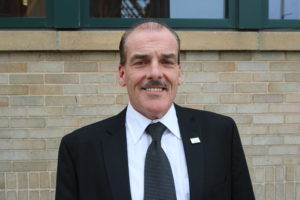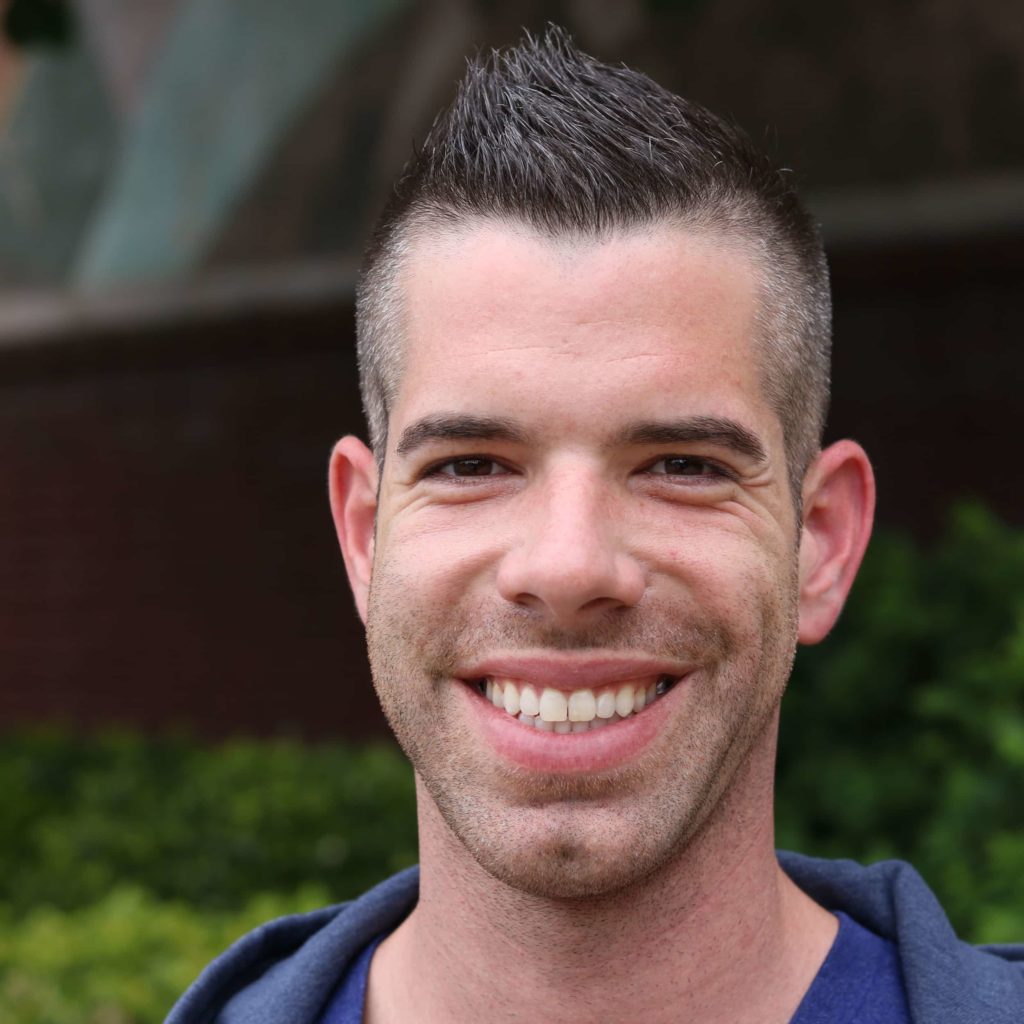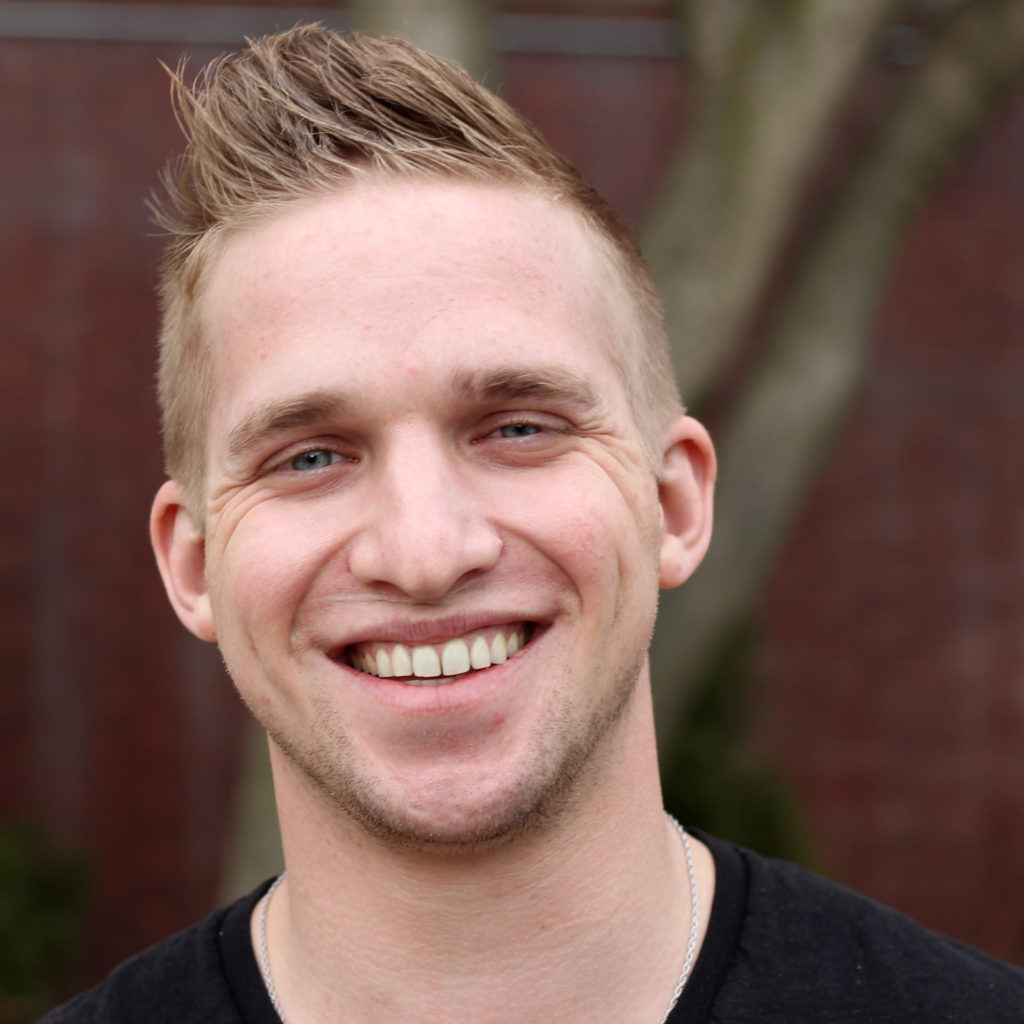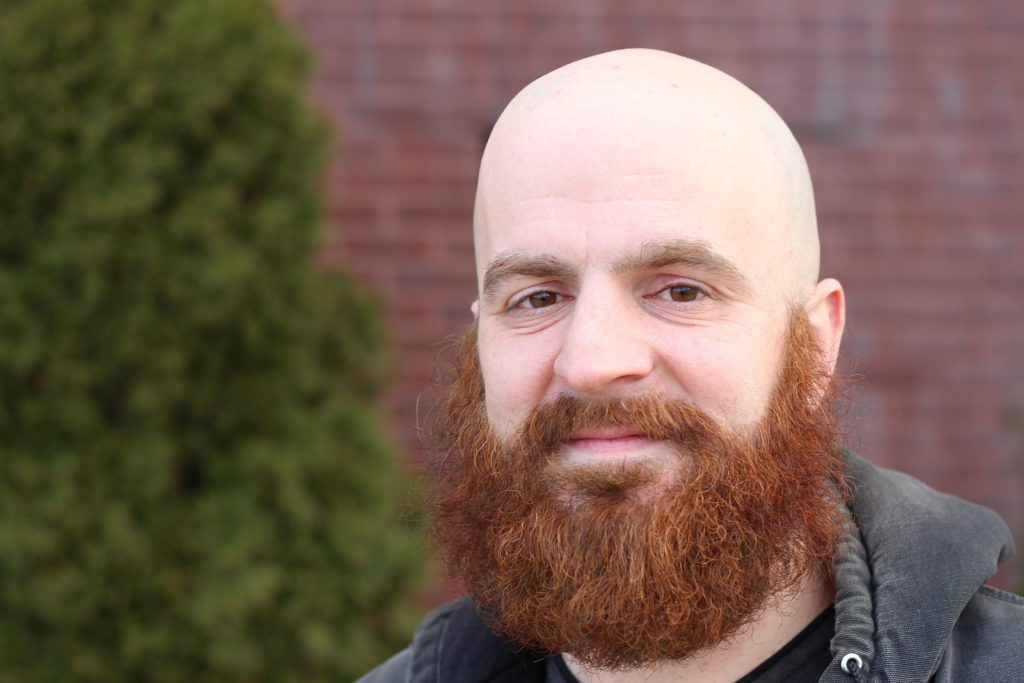“God, this is it, I’m done. Please make something happen.”
Listen and subscribe to A Shot of Hope: Recovery Stories
Struggling with addiction for over 20 years, Ramon (39) asked God for help, “God, this is it, I’m done. Please make something happen.” Thanks to generous donors like yourself, Ramon’s prayers were answered, and he came to Helping Up Mission (HUM), where he has healed, “spiritually, mentally, and physically.”
Born in Guatemala, Ramon’s family moved a lot: from Costa Rica to the Dominican Republic, to Puerto Rico, and the Virgin Islands. His father, a preacher in the Seventh Day Adventist church, and his mother did a good job of making his family feel safe during the many moves. “I never liked to be in one place for very long. I got used to moving and liked meeting new people and discovering new cultures,” recalls Ramon.
Being raised Seventh Day Adventist, with a strict ethical code against the consumption of alcohol, Ramon did not have his first drink until age 19. That all changed while in college. “That first night, I drank two forty-ounce beers. After that, I never drank casually. Drinking was all or nothing and I always drank to get drunk and I didn’t care about the consequences.”
Ramon’s “no-care” lifestyle would continue for another 15 years. Much like his childhood relocations, Ramon would often move to change the situations, yet his addictions would resurface. “Through the geographical moves, I now realize that I was the problem. I had always blamed my situations on other things.” Ramon moved to California to live with his sister, but his addiction resurfaced and he moved to Texas with his brother. “I thought that if I were around my brother, everything would get better. But I wasn’t happy and quickly started isolating myself. I moved back with my parents who were living in New Jersey, and repeated the process. My father got transferred to Maryland, and I moved too. The pattern repeated: I got healthy again but started drinking.
In Baltimore, Ramon got arrested and while in detention asked, “God, this is it, I’m done. Please make something happen. That is when I met John. He said that he knew of a place that would help me. I did not see him again and I was released. We never exchanged information and I did not know how to find him. But through coincidence, or more likely by GOD, John was there when I returned to get my things. And that is how I found Helping Up Mission.”
“The hardest thing about the Spiritual Recovery Program at HUM is living in a dorm with 30 guys, although it is cool how the men come from all walks of life. Learning to stay still, letting the ‘fog clear’, and taking direction were also hard at first. But they (staff) provide us with so much and there are so many opportunities to carry us through the year. I joined the choir and connected with the group Brothers in Prayer. I signed up for everything that HUM had to offer, like backpacking. I joined a recovery homegroup and attended Celebrate Recovery.”
Throughout the year I also stayed connected with John. He said he had a job opening for me when I was ready. At first, it was hard to find a job because of my past. But HUM helped me expunge my criminal record, and I work for John now at Sofi’s Crepes Fells Point. A job that I can walk to! It has been a blessing.
As Ramon looks ahead to his future, he is thankful for HUM teaching him to sit still and just letting God lead. “I passionately want to be a Peer Recovery Specialist. I want to help people get over the hump of addiction. I know what they are going through, and I want to show them how they can start from nothing and relearn what they know about God, religion, and recovery.”
“My relationship with God today is very personal. Recovery has really helped me see His love for humankind, but we must find out how to love ourselves first. God has given me the gift of being comfortable around people. Because of my upbringing, I trust people, and that is what I want to help instill in others. By trusting in God, like when I prayed to him from the detention center, He opened the door and placed John into my life.”
“Today, I am most thankful for my health and my life. My family stuck with me, even when I was reaching a point in my life where (it seemed) there was no coming back. I am thankful for God bringing back my sanity (Recovery Step 2). And I am thankful for love allowing me to adapt to and accept people where they are. I am grateful for HUM healing me: spiritually, mentally, and physically. If I had the opportunity to go back and talk to myself on my first day I would say, ‘Ramon, you are at the right place. God brought you here. It’s starting now!’ “
Thanks to donors, volunteers, and partners like you, Ramon is well on his way to becoming a Peer Recovery Specialist. His true life-transformation is a testament to your generosity on many levels. And the hope that Ramon provides the men and women that we serve is immeasurable.



